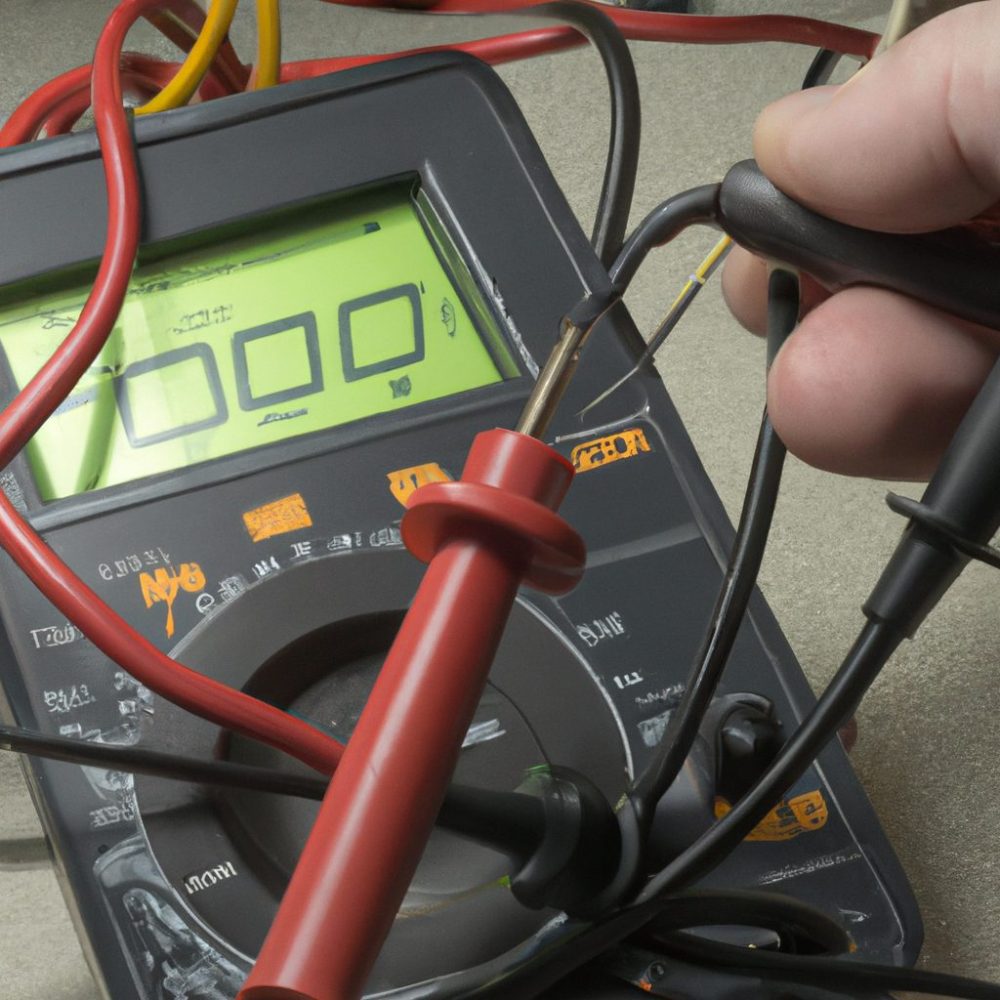When it comes to your car, you want to ensure it has all the power and performance it needs to run reliably. Cold-cranking amps (CCA), which measure how much electricity a car battery can provide at 0 degrees Fahrenheit, is one of the most important measurements to determine this. In this post, we’ll define CCA, explain why it’s important, and demonstrate how to test a battery’s CCA with a multimeter easily. If you need an accurate reading for your vehicle, keep reading as we dig deeper into this vital subject!
What is a cold-cranking amp, and why do you need to test it?
Cold-cranking amps (CCA) measure a vehicle’s battery power. It is the amount of current that can be delivered by the battery at 0°F for 30 seconds without dropping below 7.2 volts. The higher the CCA rating, the more powerful the battery and its ability to start your car in cold weather. Testing your vehicle’s CCA allows you to determine if it has enough power to start your engine in these conditions appropriately.
It is essential for people who live in colder climates or frequently travel through them. An insufficiently powered vehicle may completely stall out in extreme temperatures, leaving you stranded on the side of the road. Additionally, having an understanding of your vehicle’s CCA will help you make informed decisions when it comes to getting a new battery. Knowing your car’s CCA rating or the minimum requirement for its model is vital for making sure you purchase a battery with enough power to keep your vehicle running in cold temperatures.
Testing your vehicle’s cold-cranking amps can save time, money, and stress. Making sure that you have the correct type of battery and enough power backup is essential in ensuring that your car runs smoothly – even in the worst weather conditions.
To test the CCA of your vehicle’s battery, you need to use a digital multimeter that measures current flow. You should take the test when your car is turned off, as this will give you the best indication of its true power. By taking a few minutes to test your vehicle’s CCA and ensure it meets the required standards, you can guarantee that your car will be reliable no matter the weather conditions you are driving in.
How To Test Cold Cranking Amps With A Multimeter
Testing your car battery’s Cold Cranking Amps (CCA) with a multimeter is an essential part of vehicle maintenance. Knowing your CCA can help identify issues with the battery before it causes any damage to other parts of your car.
- Preparing for Testing Before you begin testing, attach the multimeter safely to the battery terminals and start your vehicle. This is a two-person task, with one person controlling the ignition and another checking for variations while the engine runs.
- Taking Measurement Once you set up the multimeter, measure the voltage idle. The reading should be between 10V and 12V; if it drops to 5V or below, it indicates that your battery is fading or not in good working order. Monitor any changes in voltage that happen as you rev up the engine slightly; ideally, this should result in an increase in voltage from elsewhere within the engine.
- Final Steps After taking your final Measurement, you can remove the multimeter from the battery terminals and switch off the engine. If you notice any discrepancies in voltage during Testing, it’s a good idea to take your car to a mechanic and get them to look over it as soon as possible.
By following these steps, you should be able to test your Cold Cranking Amps accurately with a multimeter and identify any potential issues with your car battery before they become too serious. It’s an essential part of vehicle maintenance that every driver should carry out regularly.
How to fix low Cold Cranking amps
Low cold cranking amps (CCA) can be a significant problem for vehicles, as this rating indicates the vehicle’s ability to start in cold weather. To fix low CCA, it is essential to diagnose and address any underlying causes contributing to the issue.
- First and foremost, check the battery’s charge level with a multimeter. If the voltage is below 12 volts, likely, your battery is not retaining its charge; an alternator failure or excessive discharge could cause this.
- Check for corrosion on the battery terminals and cables – if present, clean them with a wire brush to ensure good connections between the battery and starter motor.
- Inspect your car’s electrical system for any loose connections or frayed wires, as these can cause low CCA readings from your vehicle’s battery.
- Test other components of the starting circuit, such as starter solenoids, relays, and fuses, to ensure they are functioning correctly.
- If all the other components of your starting circuit are in good condition, replacing the battery with a new one with higher CCA ratings for cold weather performance may be necessary.
- Always use a battery that meets or exceeds the original manufacturer’s requirements for your vehicle’s make and model when replacing a battery.
Common causes of low cold cranking amps:
Weak/discharged battery:
Commonly due to age or lack of maintenance, a weak or discharged battery can cause low crank amps.
Wrong size battery:
Installing the wrong-size CCA (cold cranking amps) rated battery in your vehicle can contribute to lower cold crank amp readings during Testing.
Corroded/loose Battery terminals:
Poor connections at the battery terminal can reduce power flow and lower cold cranking amp readings.
Bad Alternator:
When an alternator is defective, it does not recharge the vehicle’s primary power source, which puts extra strain on the starter and leads to low cold crank amperage readouts.
Low Engine Oil Level:
When the engine does not receive enough oil, it can cause a weak crank or slow start, resulting in low cold cranking amps during Testing.
Bad Starter Motor:
A faulty starter motor can be due to worn brush contacts, bad armature windings, and other issues that reduce performance and lead to lower cold crank amp readings.
Short Circuits/Open Circuits:
These issues are caused by broken wires, poor connections, or loose ground wires that prevent electricity from flowing correctly and lead to lower crank amperage readouts during Testing.
Ignition Switch Problems:
Faulty ignition switches interfere with normal voltage flow and reduce power output, resulting in lower cold cranking amps.
Bad Wiring Connections:
Poor wiring connections reduce the voltage flow and lead to weak starting performance and low crank amperage readings during Testing.
Low Temperature:
Colder temperatures require more energy to start a vehicle, resulting in lower cold cranking amp results than average conditions. This is why it’s essential to test battery performance at different temperature levels when troubleshooting starter or alternator issues.
Frequently Asked Questions:
Cold-cranking amps, abbreviated as CCA, measure the electrical current a battery can deliver in extremely cold temperatures. This Measurement helps determine the overall power and performance of an engine’s starting system.
A digital multimeter measures the voltage drop across two points on the battery when passing a known amount of current through it. Depending on the type of multimeter you have, either a set or adjustable amount of amperage will be used to calculate CCA by multiplying that value with the measured voltage drop.
It is recommended to test your battery’s CCA when the temperature drops below 32°F, as the results would be more accurate.
If your battery fails a CCA test, it may require charging or replacement. Ensure other components of the engine’s starting system are checked for any issues.
An analog or digital multimeter with both AC and DC capabilities can be used for testing your battery’s CCA. However, an automotive multimeter designed explicitly for this purpose is often the most reliable option.
Yes, the state of charge of a battery can significantly impact its CCA. It is essential to ensure that the battery has been fully charged before Testing to get accurate readings.
It is recommended to perform CCA tests at temperatures below 32°F to get more accurate readings.
Using a multimeter, you can test other components such as ignition coils, alternators, starter motors, and other systems required for engine starting.
Yes, taking necessary safety precautions while performing a CCA test with a multimeter is essential. Ensure the battery terminals are covered and insulated before connecting the multimeter’s leads to avoid any electric shock or short circuit risks.
Conclusion:
Finally, testing the cold cranking amps with a multimeter is simple and can be done by anyone. It will assist you in understanding how your battery performs under various temperatures and conditions, allowing for better vehicle maintenance. Testing the Cold Cranking Amps of your battery is a simple way to ensure that it will work properly when needed. All you need is some basic electrical knowledge and a few simple tools.






